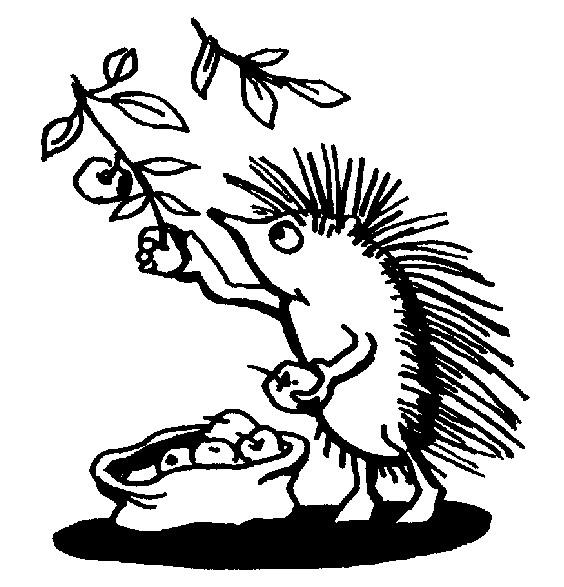Public Stories and Recordings
For an engaging weekly children’s liturgy involving puppets, original stories, music, clear messages and prayer tips, check out Monica McArdle’s YouTube channel. Monica is a university friend of parishioner, Kesta Fleming, and a member of the Sion Community in the UK.
The Parable of the Talents - Matthew, Chapter 25 Verses 14 - 30
What's a parable? What is a talent? This talk will help you understand what this well known bible story is all about and what it means for us today, 2000 years after Jesus first told it. (If you listen to this separately from the Sunday service at St Paul's on 15th November, you will need a bible so you can read the story for yourself after the talk.)
A children’s talk by Graham Scott for the 8th of November.
A children’s talk by Graham about planning. How can you plan to make the world a better place for yourself and those around you?
16 August 2020 Children’s Talk
A Children's talk by Graham Scott, for the 16th of August 2020. Join us as Graham explains how acts of kindness is what marks the start of civilization, and brings us together as a community.
A talk by Kesta for the children of St Paul's about laughter. What does the Bible say about laughter? We might not always be able to change what’s happening around us, but there are certainly ways we can make ourselves and others happier. Let’s use the gift of laughter to cheer each other up during lockdown.
A Children’s Talk by Graham Scott, relaying the message that even when the world is going through a bad time, it is the small acts of kindness that will get us through the tough times.
Stories by Geoff Smith - Twelve children’s stories Inspired by the parables of Jesus
“Stories of animals with funny names where bad things happen but it ends up good.” This was the brief my four year old granddaughter gave me when I offered to write and tell her stories. I was thinking of five or six stories but it ended up with 52 !! The stories in this series are inspired by the parables of Jesus. They are not literal interpretations of the Bible stories. Changes have been made often to meet the need of a ‘happy ending’.
- Geoff Smith
Parable of the Good Samaritan: Luke 10: 30 – 37
The Priest and the Levite have been replaced with good friends who should have helped Cupine. The Samaritan becomes a relative stranger – Happypotamus. For children the question is possibly not “who is my neighbour” but rather “who is my friend.” The answer is the one who is prepared, irrespective of status and circumstance, to love and be kind at all times – good and bad. Jesus had such love he was prepared to die for his friends.
This story closely follows the Bible parable, “Parable of the House Builders: Matthew 7: 24 – 27, Luke 6: 47 – 49”. The storm and the winds represent the trials and tribulations that are a normal part of life. A strong foundation in the love of God as expressed in Jesus and living that faith builds in us a strong foundation assisting us to weather the storms of life. Recall the Sunday School song;
Build on the rock, the rock that ever stands
Build on the rock and not upon the sand
You may not fear the storm or the earthquake shock
You’re safe forever more if you build on the rock.
This story closely follows the spirit of the Bible parable of “The Prodigal Son: Luke 15: 11 - 32”, but in the interests of a “happy ending” the Bible emphasis on the reaction of the elder brother is not mentioned. Children could be asked - “Would Hoppy have been pleased that his brother returned home?” Discussion should not focus on Wombrat’s infidelity (he can’t help it) but on Happypotamus’ forgiveness.
Similar to the Bible parable of “Parable of the Sower: Mark 4: 3 – 9; Luke 8: 5 - 15”, but we have three sowers; only one who sows the seed in the good ground. This potentially changes the emphasis of the story from the soil to the sower. In discussion with children the emphasis should be brought back to the soil. Only when the seed is in good soil can we, the seed, ‘bring forth good fruit’.
The story closely mirrors the Bible narrative of “Parable of the Rich Fool: Luke 12: 16 - 21” except for the ending. The Bible parable ends with the death of the Rich Fool. The requirement that the stories end happily precluded Wombrat’s demise (and he is needed for other stories!). Instead he loses everything – death to treasures rather than self. The ending is made happy by Wombrat’s repentance and love shown by his friends. The story may also be linked to Matthew 6:19-20 “Lay not up for yourself treasures on earth ---”
The story has to make do with six animals rather than the ten virgins in “Parable of the Ten Virgins: Matthew 25: 1 - 13”. But the message is the same: be watchful, you don’t know the time or the hour. For there to be a happy ending, focus on the three wise animals – wisdom and preparation brought reward. As boy (and girl) scouts say “Be Prepared”. You don’t know the time and the hour.
Parable of the Workers in the Vineyard: Matthew 20: 1 - 16
Does this story qualify for a “happy ending?” On face value, it is one of the more difficult parables for children to understand. Jesus intends a happy ending for all, whether we come to faith early or late. But children’s reaction will be “that’s not fair.” This story may help them to come to an understanding of God’s grace and mercy and that these attributes are much greater than fairness.
Parable of the Unforgiving Steward: Matthew 18: 23 - 35
The happy ending to this parable is also questionable. But unlike the previous story, children will recognize it as being ‘fair’. But fairness is not the rationale for the parable nor should the emphasis be on borrowing. The emphasis should be on forgiveness. “Forgive and you shall be forgiven” could be rewritten “forgive as you have been forgiven.”
Parable of the Great Banquet: Luke 14: 16 - 24
The parable is a warning not to be so preoccupied with meaningless activities that we turn our backs on the things that are important. Children are growing up in a world where things are seen as being more important than relationships, particularly a relationship with God. Encourage children to find time for others and to make their relationship with God the first priority.
Parable of the Lost Coin: Luke 15: 8 - 9
Parable of the Lost Sheep: Matthew 18: 10 - 14; Luke 15: 4 - 6
Two stories for the price of one! Both can be used to highlight the importance that God places on seeking and saving those who are lost - and the rejoicing that takes place when the lost is found.
Parable of the Talents: Matthew 25: 14 - 30
The requirement of a happy ending demanded that the story be a dream. The happy ending is that Crocosmile has learnt her lesson. Parables are written so that we can comprehend a Godly truth and the dream gave Crocosmile that understanding. The understanding is that we must use our God given talents or gifts and that sometimes that may involve risk.
Parable of the Pearl of Great Price: Matthew 13: 45 - 46
It is fitting that stories with happy endings ends with the happiest ending of all. Wombrat sells all that he has to gain something even more precious – and he is transformed in the process. As in the previous story, a risk was taken but the reward was immense. Wombrat’s ‘eternal chocolate’ might be considered analogous to ‘never thirsting again.’ Contrast with story 5. In that story he ‘got everything and ended up with nothing’. In this story he ‘sold everything and ended up with a more precious treasure’.
We’re just starting out with our online resources! If you have and feedback or recommendations, on how we can improve, we’d love to hear from you.












